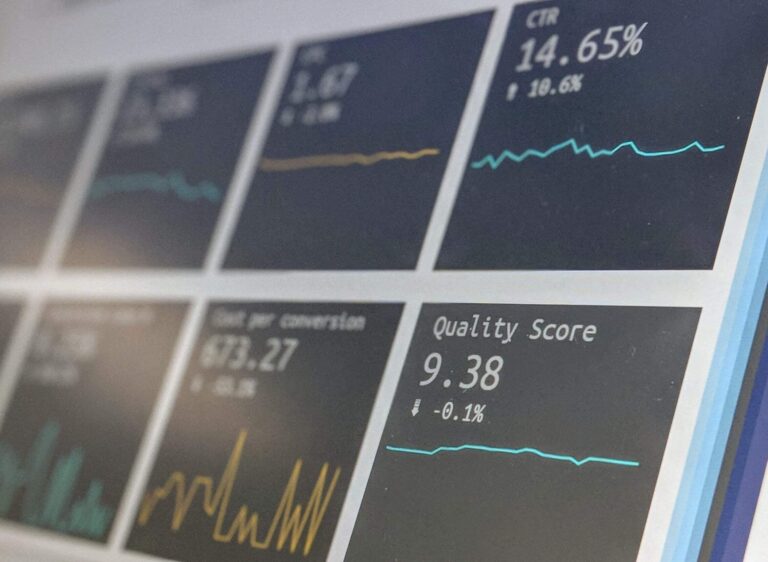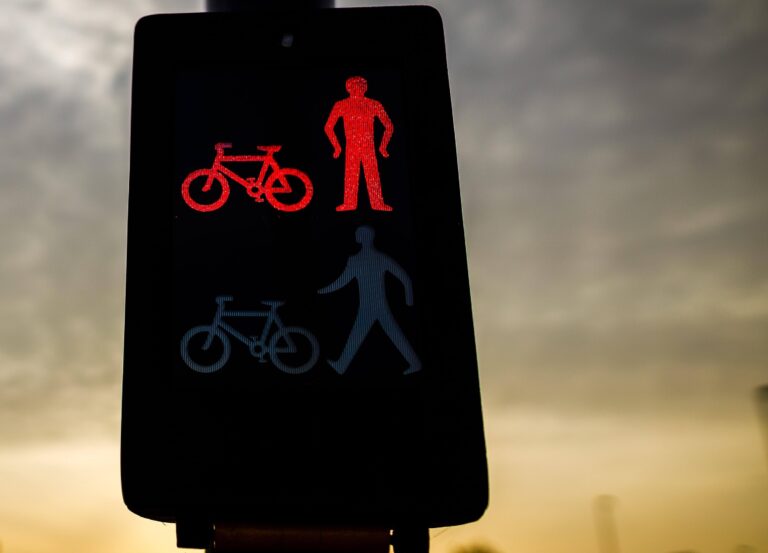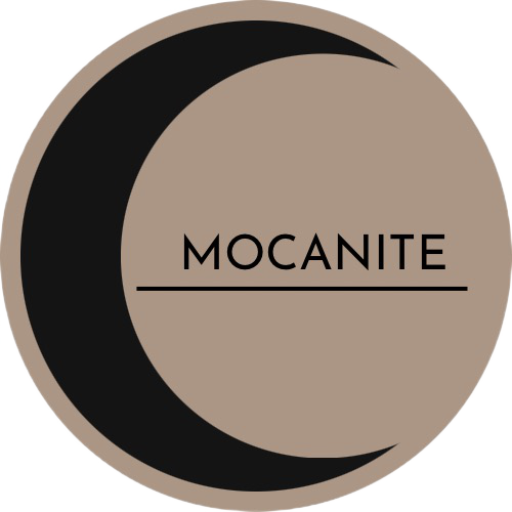How Is Artificial Intelligence Changing The Recruiting Process?

Recruiting has always been a crucial aspect of businesses, as the right talent acquisition is vital for success.
In today’s digital age, the landscape of recruiting has been transformed by advancements in artificial intelligence (AI) technology.
AI has revolutionized the way companies attract, screen, and hire candidates, making the recruiting process more efficient, effective, and competitive.
In this article, we will delve into how is artificial intelligence changing the recruiting process and shaping the future of talent acquisition.
The Rise of AI in Recruiting
Artificial intelligence has gained immense popularity in the recruiting industry due to its ability to streamline various aspects of the hiring process.
AI-powered recruitment tools and platforms are now widely used by HR professionals and hiring managers to automate and optimize recruitment tasks.
These tools leverage machine learning algorithms, natural language processing, and data analytics to analyze vast amounts of candidate data, identify patterns, and make data-driven decisions.
One of the key areas where AI is making a significant impact is talent sourcing.
AI-based solutions can search and analyze millions of resumes and social media profiles to identify potential candidates that match the desired skills and qualifications.
These tools can also analyze job postings and identify the most effective channels for job postings, ensuring that the job advertisements reach the right candidates at the right time.
Artificial Intelligence in Recruitment: How AI Can Help Recruiting

AI can revolutionize recruiting through talent sourcing, intelligent candidate screening, candidate assessment, personalized candidate engagement, promoting diversity and inclusion, providing predictive analytics, and analyzing employee data for retention.
AI automates tasks, enhances decision-making, improves candidate experience, and provides valuable insights for strategic recruitment planning.
Talent Acquisition Process
AI-powered algorithms can efficiently search and analyze vast databases of resumes and online profiles to identify the most suitable candidates for a job.
This saves hiring managers time and effort in manually reviewing and shortlisting resumes.
Predictive Analytics

AI-enabled predictive analytics involves using advanced algorithms to analyze large data sets and generate insights and predictions related to recruitment trends, candidate behavior, and job market dynamics.
It helps hiring managers make data-driven decisions by providing valuable information for strategic recruitment planning, improving the overall hiring process, and enhancing the quality of candidate selection.
Screening and Assessment
Screening and assessing candidates can be a time-consuming and labor-intensive process for talent acquisition leaders.
However, with AI-powered resume screening and assessment tools, this process has become more efficient and accurate. These tools use machine learning algorithms to analyze resumes, job applications, and other relevant data to identify the best-fit candidates for a particular job.
AI-powered assessment tools can also conduct online assessments, simulations, and video interviews to evaluate a candidate’s skills, knowledge, and cultural fit.
These tools not only save time but also minimize human bias in the screening and interview process, ensuring a fair and objective evaluation of candidates.
Candidate Engagement and Experience
Another significant area where AI is transforming the hiring process is candidate engagement and experience.
AI-powered chatbots and virtual assistants are increasingly being used by companies to engage with candidates and provide personalized experiences throughout recruitment.
These chatbots can interact with candidates in real time, answer their questions, and provide relevant information about the job and the company.
AI-powered chatbots can also schedule interviews, send reminders, and collect feedback from candidates, enhancing their overall experience and increasing their engagement with the hiring process.
Personalization and Customization
AI is also driving personalization and customization in the recruiting process.
AI tools can analyze vast amounts of candidate data, including their resumes, social media profiles, and online activities, to create a comprehensive profile of each candidate.
This data can then be used to personalize job recommendations, tailor job offers, and customize communication with candidates.
For example, AI can analyze a candidate’s preferences, interests, and career goals to recommend relevant job opportunities that align with their aspirations.
This level of personalization not only enhances the top candidate’s resume and experience but also increases the chances of attracting and retaining top talent.
Data-Driven Decision Making
AI is also empowering HR professionals and talent acquisition leaders to make data-driven decisions in the recruiting process.
AI-powered analytics tools can analyze large datasets, including candidate data, job market data, and industry trends, to provide insights and recommendations for optimizing recruitment.
These tools can help recruiters identify the most effective recruitment channels, assess the performance of job postings, and measure the success of recruitment campaigns.
By leveraging data and analytics, recruiters can make informed decisions, identify areas for improvement, and continuously optimize the recruiting process for better results.
Employee Retention
AI can be used for employee retention by analyzing employee data, such as performance reviews and feedback, to identify patterns and trends.
This allows organizations to proactively address retention issues, implement targeted retention strategies, and take steps to retain top talent, thereby improving employee satisfaction and reducing turnover.
Ethical Considerations in AI-Powered Recruiting
Ethical considerations in AI-powered recruiting are crucial to address as artificial intelligence continues to transform the way organizations identify, attract, and hire productive candidates.
The use of AI algorithms in the recruiting process has the potential to revolutionize talent acquisition by automating various tasks, improving efficiency, and enhancing decision-making.
However, it also raises important ethical concerns that HR professionals and recruiters must be mindful of to ensure fair, unbiased, and ethical hiring.
The Limitations of Artificial Intelligence Recruiting

Artificial Intelligence recruiting, or the use of artificial intelligence in hiring, has gained popularity in recent years due to its potential to streamline and optimize hiring processes.
However, like any technology, Artificial Intelligence recruiting also has its limitations. Some of the main limitations of Artificial Intelligence as AI recruiting tool are:
Bias
Despite the promise of objectivity, Artificial Intelligence recruiting systems can still be biased.
AI algorithms are trained on historical data, which may contain biases that can perpetuate discriminatory practices.
For example, if an Artificial Intelligence recruiting system is trained on resumes submitted in the past that have biases, such as gender or race, it may unintentionally carry those biases into its decision-making process, leading to discriminatory hiring practices.
Lack of context and human touch
Artificial Intelligence recruiting systems may lack the ability to fully understand and interpret the nuances of human behavior, emotions, and context.
Human touch and intuition, such as understanding cultural fit or assessing soft skills, are important aspects of hiring that may be challenging for AI to accurately assess.
Limited adaptability
Recruiting AI systems are typically designed to perform specific tasks and may not be easily adaptable to changing recruitment needs or evolving job requirements.
As the job market and hiring requirements continue to evolve, Artificial Intelligence recruiting systems may struggle to keep up and accurately identify the best candidates for a particular role.
Privacy and security concerns
Recruiting technology often process and store large amounts of data, including the personal information of candidates, which can raise concerns about privacy and security.
Ensuring that candidate data is protected and used ethically can be a challenge, and organizations need to take appropriate measures to safeguard sensitive information.
Ethical concerns
The use of AI in recruiting raises ethical concerns, such as the transparency of the decision-making process, fairness in candidate selection, and accountability for outcomes.
Ensuring that Artificial Intelligence recruiting systems are designed and used ethically and that candidates are treated fairly throughout the application process, requires careful consideration and monitoring.
Human Bias in training data
AI-powered recruiting software relies on vast amounts of data for training, and if this data contains biases, it can lead to biased outcomes.
For example, if a training dataset for an AI recruiting system contains mostly male resumes, the system may have a bias towards male candidates, leading to gender imbalance in the hiring process.
Potential for legal and regulatory challenges
The use of AI in recruiting may raise legal and regulatory challenges, particularly in areas such as data privacy, discrimination, and fairness.
Organizations need to be aware of relevant laws and regulations and ensure that their AI recruiting tools comply with these requirements.
AI recruiting has the potential to improve recruitment processes, it also has limitations related to bias, lack of context and human touch, limited adaptability, privacy and security concerns, ethical concerns, bias in training data, and potential legal and regulatory challenges.
Organizations should be mindful of these limitations and take appropriate measures to address them to ensure that AI is used responsibly and ethically in employment.
What Recruitment AI Solutions Are Available?
Resume/CV Screening Tools

These tools are applying AI algorithms to automatically screen and analyze resumes and CVs, helping recruiters identify qualified candidates quickly and efficiently.
They can analyze factors such as relevant skills, education, job experience, and keywords to match job seekers with job requirements.
Talent Acquisition Tools
AI-powered talent sourcing tools leverage machine learning to identify potential job seekers from various online sources such as social media, professional networks, and job boards.
They use algorithms to analyze candidate profiles and recommend top matches based on job criteria, reducing the time and effort required for candidate sourcing.
Chatbots and Virtual Assistants
Chatbots and virtual assistants powered by AI can automate initial candidate interactions, answer frequently asked questions, and collect qualified candidates’ information.
They can be used for scheduling interviews, sending reminders, providing updates on employment, improving experiences, and saving time for recruiters.
Video Interviewing Platforms
AI-powered video interviewing platforms use natural language processing (NLP) and facial recognition technology to analyze candidate responses, gestures, and expressions during video interviews.
These tools can provide insights into a candidate’s communication skills, personality traits, and emotional intelligence, helping recruiters make informed hiring decisions.
Employee Referral Tools
Employee referral tools powered by AI can automatically match job openings with employees’ networks and generate personalized recommendations for candidates.
These tools can streamline the referral process, encourage employee engagement, and increase the quality of referrals.
Onboarding and Talent Management Tools
Some AI-powered recruiting tools also include onboarding and talent management features. These tools use AI algorithms to automate onboarding tasks such as document collection, training, and orientation.
They can also provide insights and analytics on employee performance, engagement, and retention, helping organizations manage their talent effectively.
Benefits of AI in the hiring process
Increased efficiency

AI-powered tools can automate time-consuming and repetitive tasks such as resume screening, candidate sourcing, and initial assessments.
This allows recruiters to focus on more strategic and high-value activities, thus saving recruiters time and effort in the recruitment process.
Enhanced candidate experience
AI can provide personalized and interactive experiences to candidates, such as chatbots that can answer their questions and provide relevant information about job openings or application processes.
This improves the overall candidate experience and engagement, leading to a positive impression of the employer’s brand.
Improved accuracy and objectivity
AI eliminates human biases in the recruitment process by objectively evaluating candidates based on predefined criteria.
This reduces the chances of unconscious biases influencing hiring decisions, ensuring a fair and consistent evaluation of all candidates.
Enhanced talent sourcing
AI-powered tools can scan through vast databases and online platforms to identify potential qualified passive candidates with the desired skills, experience, and qualifications.
This expands the talent pool of quality candidates and helps recruiters discover a hidden talent, increasing the chances of finding the right fit for the job.
Data-driven decision making
AI can analyze large volumes of data to generate insights and predictive analytics that can inform decision-making in the recruitment process.
This helps recruiters make informed decisions about candidate selection, job offers, and workforce planning, leading to better hiring outcomes.
Cost-effective recruitment
By automating various recruitment tasks, AI can help reduce recruitment costs by minimizing the need for manual effort and resources.
This is particularly beneficial for small and medium-sized enterprises (SMEs) with limited recruitment budgets.
Improved quality of hire
AI-powered assessments can measure a candidate’s skills, competencies, and cultural fit with the organization, leading to a better quality of hire.
This can result in higher employee performance and productivity and reduced turnover rates.
BEST AI VOICE GENERATORS

AI voice generator software is known on the market since over a decade now. If you can only think of any line being spoken by any voice, it can probably be generated with one of the voice generators. Find out which of them are the best!
CREATING CONTENT WITH AI

The content creation process can be difficult, exhausting, and time-consuming for many people, especially since being busy became so popular nowadays. Artificial intelligence comes with help by providing ai tools that can create content much quicker and more accurately than human writers
BEST AI WEBSITE BUILDERS FOR 2023

It doesn’t matter if it’s a blog, an online store, or a company website. A pleasant web page guarantees clients’ and readers’ satisfaction and a probability of them returning to you.
BEST AI WRITING ASSISTANTS

The content creation process can be difficult for many people. artificial intelligence comes with help by providing ai writing tools that can write content much quicker and more accurately than human writers
